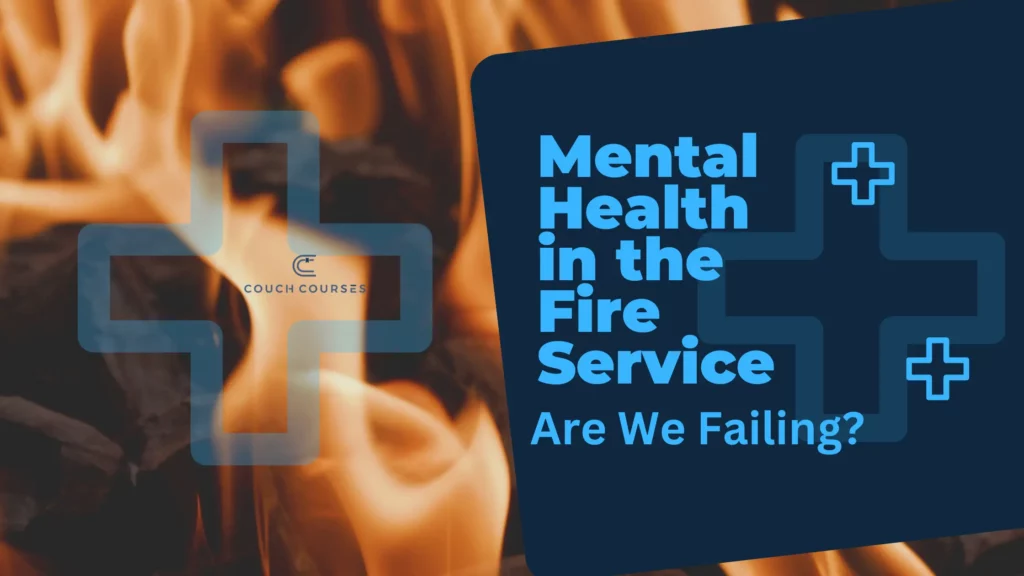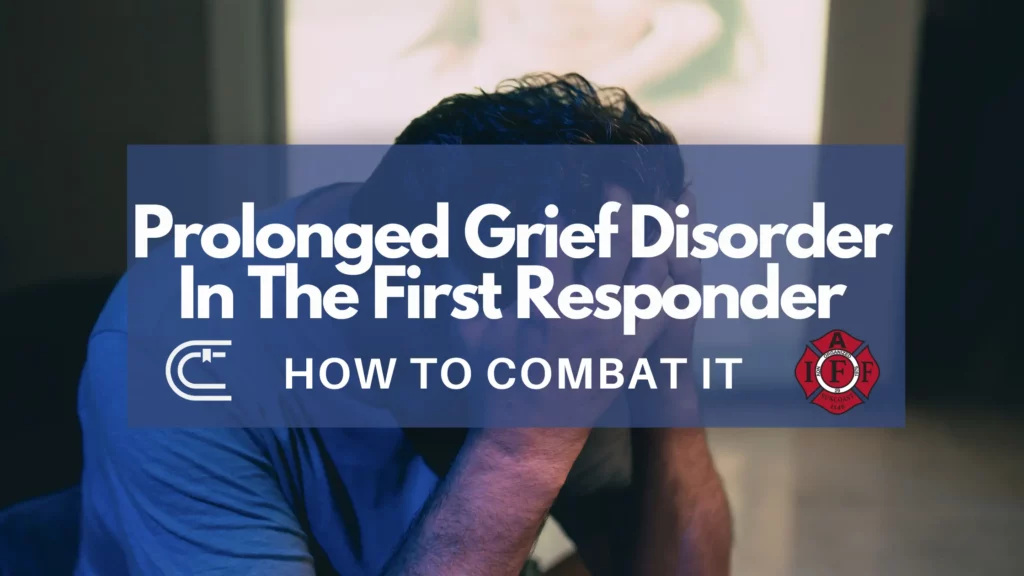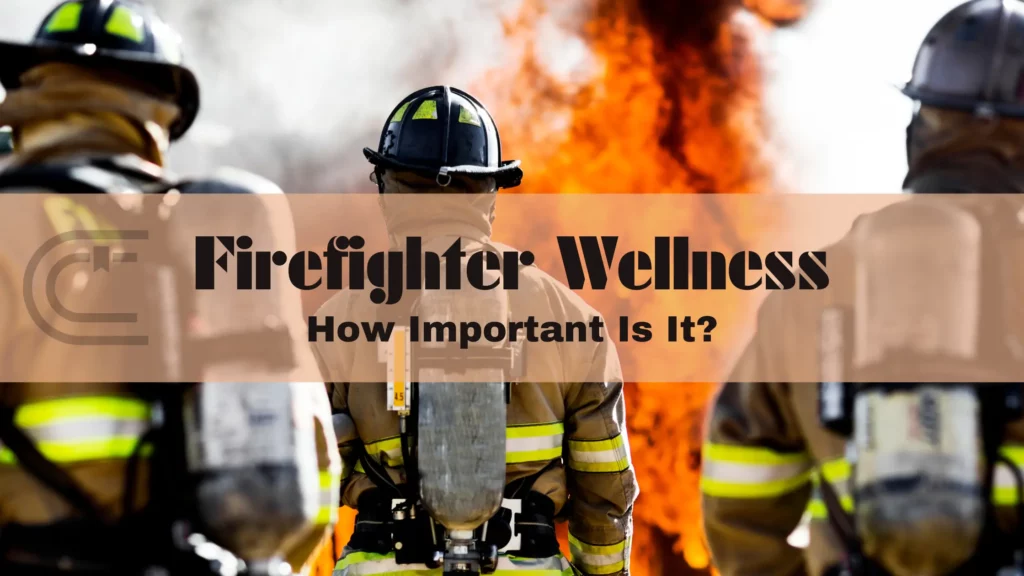Mental Health in the Fire Service: Are We Failing?

It seems as if we prevent everything in the fire service but mental health failure. We focus on fire prevention, safety committees, injury prevention, equipment maintenance, prevention of sexual harassment and many more investments of time and money, but little on how NOT to let the job bring you to the point of suicide..
If you or someone you love is contemplating suicide, please click this link to the suicide and crisis lifeline website or text/call 988 for help now.
Personal Experiences With Personnel
Throughout a 42 year career, one has a lot of experiences that shape and affect them. Typically, the first of a particular experience can impact them the most. Here are a few personal experiences that had a large impact on me.
- As I was sitting in my office one day, one of my staff supervisors came in to tell me that one of my medics had attempted suicide and she was in the hospital. It was the first time I had experienced one of my own employees attempting to take their own lives. I had known this person for quite some time and while her private life could be considered somewhat complicated, I know it was her work environment that added to her desperation.
- Several years later, a similar event occurred when I was told that some of our field supervisors discovered that one of our employees had planned to take his own life. They quickly acted and responded to the location where it was supposed to take place. That employee became aware of their concerns and fled that location to another place, where he attempted to take his life.
- And again, several years after the previously mentioned attempt, another employee was made aware that one of my key staff members was at a point of desperation and contemplating suicide. On his own he could not process his work-related experiences. Fortunately, he was surrounded by people who cared about him and got him into a program. That’s where he found professional help to work through these work experiences.
These are just three quick examples that come to mind as I sit here in my retirement and contemplate what I could have done better; what any organization could have done better for the people who are out there taking care of the general public everyday.
Contemplating A Reactionary Industry
Just a couple years before I retired, I realized that when it came to mental health, almost everything we did as an organization was reactionary and not in any way preventive. In general, all public service organizations seem to have this flaw. The fire service, emergency medical services, and law enforcement all have many programs for topics such as prevention of fires, injuries on the job, workers comp claims, and how to keep your home and business safe.

What Did I Do About It?
I couldn’t sit idle and do nothing about these issues. I had our staff reach out to our local mental health professionals to see what we could do to work on the side of prevention, and tried helping all of our employees work through those seasons of their career where the job, frankly, catches up with them.
We began to introduce a mental health segment at each in-service, and we started a monthly meeting where anyone can go, remain anonymous, and find mental health professionals. I hoped that this could help them sort through their thoughts and emotions.
Let's Face Some Facts About Mental Health In The Fire Service
I know I was just touching the surface of what needs to be done in emergency services as it relates to mental health, but I think this is an issue that needs to be at the forefront of both management and the union working hand in hand with human resource professionals. There are numerous statistics out there that I could quote, but I won’t. So I’ll generalize what I know to be the truth:
- Emergency workers have a significant higher divorce rate than those of the general population, with law enforcement leading the way, and Fire and EMS just behind them.
- The average paramedic working a high volume EMS service can begin to experience what some might call burnout after seven to eight years if not properly counseled.
- The average human resource department looks at emergency workers like every other employee when it comes to these issues. Unfortunately, you can not treat a cop, firefighter, or paramedic in the same way you do somebody who works in public works. It’s a recipe for disaster.
- Almost every organization past a certain size has an employee assistance program. However, too often I found when recommending staff to go to those counselors for help, they had little to no experience in critical incident stress management. Employees would walk away from their time with the counselor even more frustrated because they felt like they weren’t being heard.
- I myself have experienced critical incident events that left me with insomnia, fear of things happening to my children and family that was irrational, and many other symptoms of critical incident stress.
What Do We Do Now?
So where do we go from here? Those who lead emergency services, or have a role in supporting them, need to take a fresh approach to preventing the negative effects of either a critical incident single event or cumulative stresses. This will improve morale, services, and longevity of personnel.
I remember speaking to an HR professional and saying the divorce rate for our employees is so much higher than the average person who works for us, and we have to own that in some way. We must also do whatever we can to keep our most treasured resources, our employees, from believing they need to take their own lives because of our lack of action to help when we can.
In hindsight, as a former chief, I wish I would have done a better job in this area of prevention, but there’s no reason why you can’t speak up through the normal channels and make sure your organization is doing everything they can to not only react to critical incident single event stress or cumulative stress, but by helping prevent it as well.
One of the fire service goals we used to talk about, and rightfully so, is that everybody goes home. An additional goal should be that you go home to the family you started with, and work long enough to enjoy your retirement after giving so much to so many.
To learn more about mental health in the fire service, read our blog on Firefighter Health and Safety.
Resources for Mental Health:





